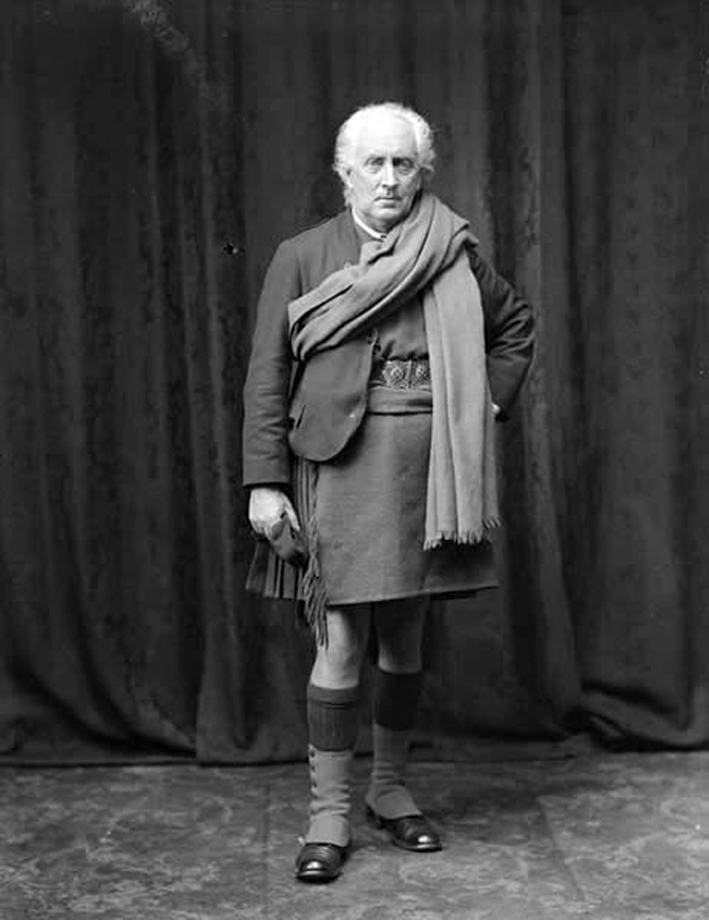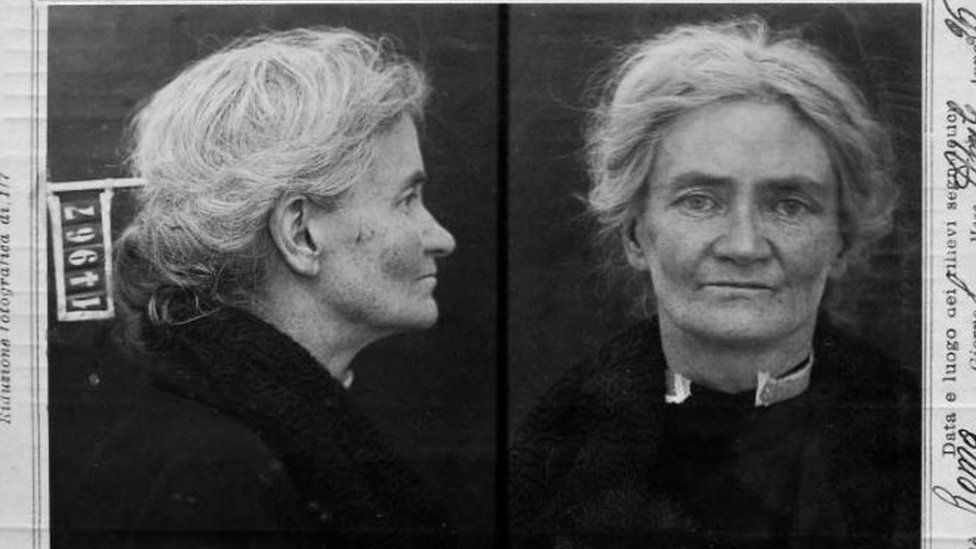|
Baron Ashbourne
Baron Ashbourne, of Ashbourne in the County of Meath, is a title in the Peerage of the United Kingdom. It was created in 1886 for Edward Gibson, the Lord Chancellor of Ireland. His grandson, the third Baron (who succeeded his uncle), was a vice admiral in the Royal Navy. the title is held by the third Baron's grandson, the fifth Baron, who succeeded in 2020. John George Gibson, younger brother of the first Baron, was also a distinguished lawyer. Violet Gibson, who attempted to assassinate Benito Mussolini in 1926, was the first Baron's daughter. Barons Ashbourne (1886) *Edward Gibson, 1st Baron Ashbourne (1837–1913) *William Gibson, 2nd Baron Ashbourne (1868–1942) *Edward Russell Gibson, 3rd Baron Ashbourne (1901–1983) *Edward Barry Greynville Gibson, 4th Baron Ashbourne (1933–2020) *Edward Charles d'Olier Gibson, 5th Baron Ashbourne (born 1967) The heir apparent An heir apparent, often shortened to heir, is a person who is first in an order of succession and ca ... [...More Info...] [...Related Items...] OR: [Wikipedia] [Google] [Baidu] |
William Gibson 2nd Baron Ashbourne June 10 1929
William is a male given name of Germanic origin.Hanks, Hardcastle and Hodges, ''Oxford Dictionary of First Names'', Oxford University Press, 2nd edition, , p. 276. It became very popular in the English language after the Norman conquest of England in 1066,All Things William"Meaning & Origin of the Name"/ref> and remained so throughout the Middle Ages and into the modern era. It is sometimes abbreviated "Wm." Shortened familiar versions in English include Will, Wills, Willy, Willie, Bill, and Billy. A common Irish form is Liam. Scottish diminutives include Wull, Willie or Wullie (as in Oor Wullie or the play ''Douglas''). Female forms are Willa, Willemina, Wilma and Wilhelmina. Etymology William is related to the given name ''Wilhelm'' (cf. Proto-Germanic ᚹᛁᛚᛃᚨᚺᛖᛚᛗᚨᛉ, ''*Wiljahelmaz'' > German ''Wilhelm'' and Old Norse ᚢᛁᛚᛋᛅᚼᛅᛚᛘᛅᛋ, ''Vilhjálmr''). By regular sound changes, the native, inherited English form of the name should b ... [...More Info...] [...Related Items...] OR: [Wikipedia] [Google] [Baidu] |
Violet Gibson
Violet Albina Gibson (31 August 1876 – 2 May 1956) was an Irish woman who attempted to assassinate Benito Mussolini in 1926. She was released without charge but spent the rest of her life in a psychiatric hospital in England. She was the daughter of Lord Ashbourne, Lord Chancellor of Ireland. Early life Violet Gibson was born in Dublin, Ireland, on 31 August 1876. Her father was an Irish lawyer and politician, Edward Gibson, who was created Baron Ashbourne in 1885. Her mother, Frances, was a Christian Scientist. Violet experimented with Theosophy before becoming a Roman Catholic in 1902. She was presented as a debutante at court during the reign of Queen Victoria. Gibson suffered severe ill health throughout her life. She had a nervous breakdown in 1922; she was declared insane and committed to a mental institution for two years. She attempted suicide in Rome in early 1925. Shooting of Mussolini On 7 April 1926, Gibson shot Mussolini, Italy's Fascist leader, as he walked ... [...More Info...] [...Related Items...] OR: [Wikipedia] [Google] [Baidu] |
Baronies In The Peerage Of The United Kingdom
{{disambig ...
Barony may refer to: * Barony, the peerage, office of, or territory held by a baron * Barony, the title and land held in fealty by a feudal baron * Barony (county division), a type of administrative or geographical division in parts of the British Isles ** Barony (Ireland), a historical subdivision of the Irish counties * Barony (role-playing game), a 1990 tabletop RPG See also * Baronet * Baronage {{English Feudalism In England, the ''baronage'' was the collectively inclusive term denoting all members of the feudal nobility, as observed by the constitutional authority Edward Coke. It was replaced eventually by the term '' peerage''. Or ... [...More Info...] [...Related Items...] OR: [Wikipedia] [Google] [Baidu] |
Ashbourne Escutcheon
{{disambig, geo ...
Ashbourne may refer to: *Ashbourne, County Meath in Ireland **Ashbourne RFC, a rugby union club *Ashbourne, Derbyshire in England *Ashbourne, South Australia in Australia *Ashbourne, Victoria in Australia *Baron Ashbourne, a title in the peerage of the United Kingdom See also *Ashbourne Cup *Ashbourne portrait, once thought to prove that Shakespeare was Edward de Vere, 17th Earl of Oxford * Ashburn (other) __NOTOC__ Ashburn may refer to: Places Canada *Ashburn, Ontario United States *Ashburn, Georgia *Ashburn, Chicago, Illinois, a community area **Ashburn (Metra), a Metra station serving the area *Ashburn, Missouri *Ashburn, Virginia, an unincorpora ... [...More Info...] [...Related Items...] OR: [Wikipedia] [Google] [Baidu] |
Coronet Of A British Baron
A coronet is a small crown consisting of ornaments fixed on a metal ring. A coronet differs from other kinds of crowns in that a coronet never has arches, and from a tiara in that a coronet completely encircles the head, while a tiara does not. In other languages, this distinction is not made as usually the same word for ''crown'' is used irrespective of rank (german: Krone, nl, Kroon, sv, Krona, french: Couronne, etc.) Today, its main use is not as a headgear (indeed, many people entitled to a coronet never have a physical one created), but as a rank symbol in heraldry, adorning a coat of arms. Etymology The word stems from the Old French ''coronete'', a diminutive of ''co(u)ronne'' ('crown'), itself from the Latin ''corona'' (also 'wreath') and from the Ancient Greek ''κορώνη'' (''korōnē''; 'garland' or 'wreath'). Traditionally, such headgear is used by nobles and by princes and princesses in their coats of arms, rather than by monarchs, for whom the word ... [...More Info...] [...Related Items...] OR: [Wikipedia] [Google] [Baidu] |
Heir Apparent
An heir apparent, often shortened to heir, is a person who is first in an order of succession and cannot be displaced from inheriting by the birth of another person; a person who is first in the order of succession but can be displaced by the birth of a more eligible heir is known as heir presumptive. Today these terms most commonly describe heirs to hereditary titles (e.g. titles of nobility) or offices, especially when only inheritable by a single person. Most monarchies refer to the heir apparent of their thrones with the descriptive term of ''crown prince'' or ''crown princess'', but they may also be accorded with a more specific substantive title: such as Prince of Orange in the Netherlands, Duke of Brabant in Belgium, Prince of Asturias in Spain (also granted to heirs presumptive), or the Prince of Wales in the United Kingdom; former titles include Dauphin in the Kingdom of France, and Tsesarevich in Imperial Russia. The term is also used metaphorically to indicate a ... [...More Info...] [...Related Items...] OR: [Wikipedia] [Google] [Baidu] |
William Gibson, 2nd Baron Ashbourne
William Gibson, 2nd Baron Ashbourne (16 December 1868 – 21 January 1942), was an Irish language activist and author. Life Born in Dublin, to Edward Gibson, 1st Baron Ashbourne, and Frances Maria Adelaide Colles (a granddaughter of Abraham Colles and niece of John Dawson Mayne), Gibson was educated at Harrow School, Trinity College, Dublin, and Merton College, Oxford University. He succeeded to the title of 2nd Baron Ashbourne, of Ashbourne, County Meath, in 1913 and held the office of Justice of the Peace for County Dublin and County Meath. He was a founder of the Roger Bacon Society and Vice-President of the Irish Literary Society. He was the author of ''The Abbe de Lammenais and the Liberal Catholic Movement in France'' and was a contributor to ''The Dublin'' and other reviews. In 1896, he married Marianne de Monbrison (died 1953), daughter of Henri Roger Conquerré de Monbrison of Paris, a French Protestant from the Languedoc. Marianne's sister was married to Count Edmond d ... [...More Info...] [...Related Items...] OR: [Wikipedia] [Google] [Baidu] |
Benito Mussolini
Benito Amilcare Andrea Mussolini (; 29 July 188328 April 1945) was an Italian politician and journalist who founded and led the National Fascist Party. He was Prime Minister of Italy from the March on Rome in 1922 until his deposition in 1943, and "Duce" of Italian Fascism from the establishment of the Italian Fasces of Combat in 1919 until his execution in 1945 by Italian partisans. As dictator of Italy and principal founder of fascism, Mussolini inspired and supported the international spread of fascist movements during the inter-war period. Mussolini was originally a socialist politician and a journalist at the ''Avanti!'' newspaper. In 1912, he became a member of the National Directorate of the Italian Socialist Party (PSI), but he was expelled from the PSI for advocating military intervention in World War I, in opposition to the party's stance on neutrality. In 1914, Mussolini founded a new journal, ''Il Popolo d'Italia'', and served in the Royal Italian Army durin ... [...More Info...] [...Related Items...] OR: [Wikipedia] [Google] [Baidu] |
John George Gibson
John George Gibson PC, QC (13 February 1846 – 28 June 1923), was an Irish lawyer, judge and Conservative politician. Background and education Gibson was the youngest son of William Gibson of Merrion Square, Dublin, and Rockforest, County Tipperary, and his first wife Louisa Grant, daughter of Joseph Grant, barrister, of Dublin. Edward Gibson, 1st Baron Ashbourne, was his elder brother. He was educated at Trinity College Dublin and was called to the bar at the King's Inns, Dublin in 1870. Legal career Gibson was made an Irish Queen's Counsel in 1880, and Third Irish Serjeant in 1885. In 1885 he was elected Member of Parliament for Liverpool Walton. He was Solicitor General for Ireland from November 1885 to January 1886 and Attorney-General for Ireland from 1887 to 1888. He resigned his seat in 1888 to become an Irish High Court Judge. Maurice Healy in his memoir ''The Old Munster Circuit'' praises Gibson's charm, eloquence, dignity and sense of fairness, although he rated h ... [...More Info...] [...Related Items...] OR: [Wikipedia] [Google] [Baidu] |
Ashbourne, County Meath
Ashbourne, historically called ''Killeglan'' or ''Kildeglan'' (), is a town in County Meath, Ireland. Located about 20 km north of Dublin and close to the M2 motorway, Ashbourne is a commuter town within Greater Dublin. In the 20 years between the 1996 and 2016 census, the town almost tripled in population from approximately 4,900 to 12,700 inhabitants. The town is passed by the Broad Meadow Water, which comes from Ratoath and Dunshaughlin. History Ancient settlement Archaeological excavations in the area around Ashbourne have revealed evidence of settlement back to neolithic times. In the townland of Rath, to the north of the town centre, a Bronze Age settlement was found during the construction of the M2 motorway. Excavations in the vicinity of the cemetery of Killegland revealed the extent of the early Christian settlement, with souterrains, house sites and a large enclosure centred around the remains of the church that is visible in the cemetery. This would link the ... [...More Info...] [...Related Items...] OR: [Wikipedia] [Google] [Baidu] |
Royal Navy
The Royal Navy (RN) is the United Kingdom's naval warfare force. Although warships were used by English and Scottish kings from the early medieval period, the first major maritime engagements were fought in the Hundred Years' War against France. The modern Royal Navy traces its origins to the early 16th century; the oldest of the UK's armed services, it is consequently known as the Senior Service. From the middle decades of the 17th century, and through the 18th century, the Royal Navy vied with the Dutch Navy and later with the French Navy for maritime supremacy. From the mid 18th century, it was the world's most powerful navy until the Second World War. The Royal Navy played a key part in establishing and defending the British Empire, and four Imperial fortress colonies and a string of imperial bases and coaling stations secured the Royal Navy's ability to assert naval superiority globally. Owing to this historical prominence, it is common, even among non-Britons, to ref ... [...More Info...] [...Related Items...] OR: [Wikipedia] [Google] [Baidu] |




